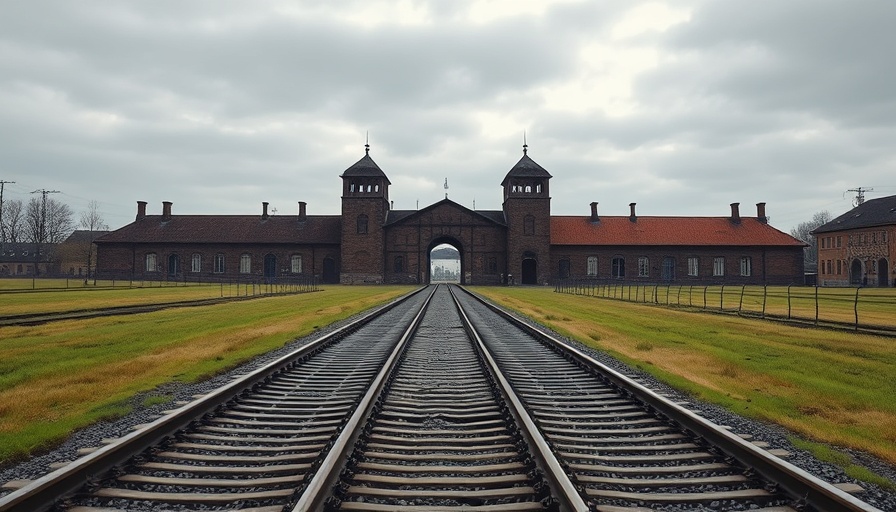
The Return: A Journey Through Pain and Memory
As the world marks 80 years since the conclusion of World War II, a small group of Holocaust survivors embarks on a poignant journey back to the death camps that changed their lives forever. Among them are Arnold Klebbs, Yosef Farkash, and Nathan Leipciger, each carrying the heavy weight of memories that haunt them daily. Their participation in this year's March of the Living serves not just as a solemn commemoration but as a living testament to the resilience of the human spirit in the face of unimaginable suffering.
Remembering the Horrors of the Past
The death marches, where thousands fell victim to fatigue or were summarily executed, are a part of their shared history. As they walk the same paths where their lives were nearly extinguished, these survivors echo the sentiment, "I remember them every day." This statement encapsulates the enduring pain and the responsibility they carry to ensure that the stories of their friends and loved ones are never forgotten.
The Growing Need for Remembrance
The act of remembrance is especially crucial today as anti-Semitism and hate crimes continue to rise globally. By revisiting these historical sites, survivors not only honor those who perished but also offer vital lessons for current and future generations. The annual March of the Living becomes a beacon of hope, illuminating the resilience of communities that have been forged in the fires of tragedy.
Lessons of Faith and Perseverance
For many participants, the trip empowers a deeper understanding of faith and the value of community. Through shared grieving and the act of remembrance, survivors and participants alike cultivate a renewed sense of purpose. Linda, a youth participant, shared, "Walking here, I realize the importance of standing up against injustice. It's not just about remembering; it's about acting for a better future."
Interfaith Solidarity: A Call to Action
As Christians and Jews gather in Oswiecim, there is an underlying thread of interfaith solidarity—a powerful reminder that this history is not only a Jewish concern but a human concern. The stories told and the lives honored challenge audiences from all faiths to engage in meaningful dialogue and proactive efforts against discrimination and violence in all forms. Christian communities around the globe, particularly those with a focus on social justice and humanitarian efforts, can lead the way in advocating for a world that stands united against hate.
The Importance of Understanding History
Engagement with these historical narratives fosters empathy and compassion across diverse populations. For those in theologically informed circles, delving into the complexities of Holocaust history provides profound insights into scriptural teachings regarding human dignity and justice. The very act of studying the Holocaust can inspire believers to advocate for those facing persecution today and to combat the roots of hate within their own communities.
Future Generations: Why Memory Matters
With each passing year, survivors become fewer in number, raising concerns about the potential fading of their stories and lessons. However, through educational programs, community workshops, and interfaith dialogues, current and future generations can ensure that the memories of those lost remain vivid. This is not merely about preserving history; it is about equipping young people with tools to create a more compassionate, just world.
Empowering Christian Communities to Act
There are numerous ways for Christian communities to support these efforts. Engaging in interfaith dialogues, participating in anti-discrimination campaigns, or simply sharing survivor stories within congregations can all contribute to a stronger, unified front against hate and persecution. The road ahead demands commitment, readiness to listen, and an unwavering dedication to justice and humanity.
Moving forward, it is our responsibility to advocate for peace in our communities, drawing inspiration from the lessons learned from the Holocaust. As we remember, we must also take action to ensure that they never happen again.
 Add Row
Add Row  Add
Add 








Write A Comment